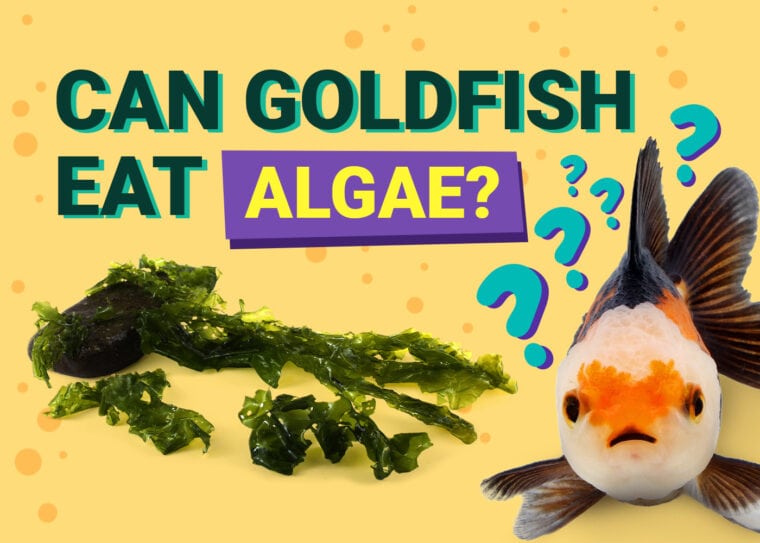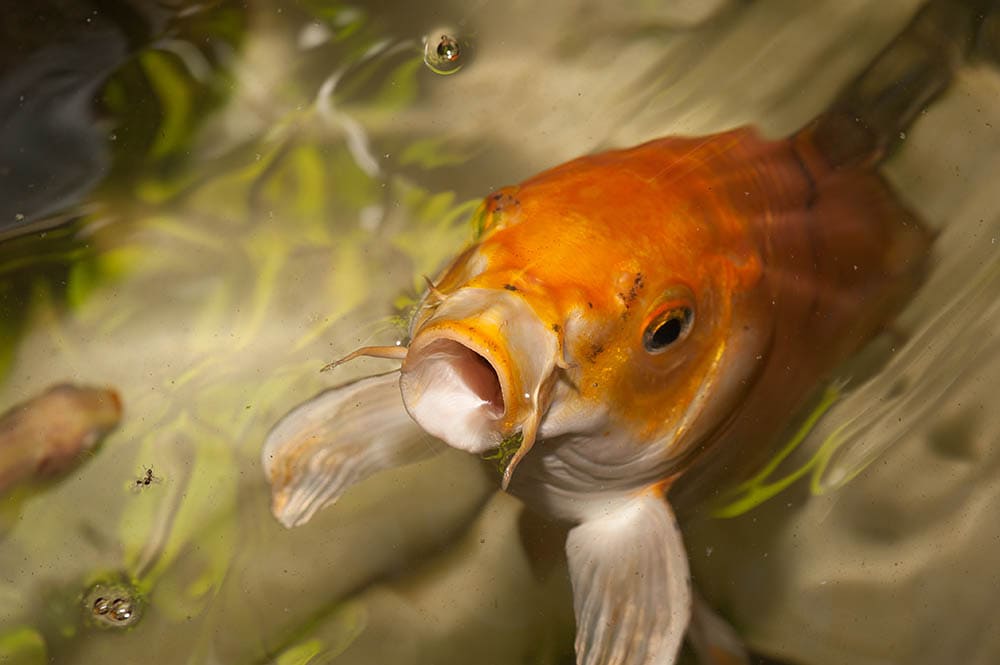
Goldfish have a varied omnivorous diet, and algae fit into their diet perfectly. Algae is not only safe for goldfish to eat, but since goldfish enjoy grazing for food around the tank, they can also help to keep algae growth under control.
If you find that your goldfish aquarium has started to grow algae, you may find that your goldfish enjoy munching on it. There are plenty of different forms of algae that goldfish can eat, and algae usually grows by itself without any special requirements from you.
Is Algae Safe for Goldfish To Eat?
Yes! Goldfish can safely eat a variety of different algae that grows in freshwater aquariums. Algae is safe enough for goldfish to eat that it is now found in many different brands of goldfish food due to its nutritional properties. It is also common for green algae to grow in ponds which provides your goldfish with a constant source of food that they can graze on throughout the day.
Most goldfish will struggle to eat algae that do not have long strands that they can suck into their mouth, as most surface algae are too stubborn to be removed and eaten by goldfish. Algae is a type of aquatic plant that thrives in ponds and aquariums that are brightly lit. It can quickly overgrow in aquariums, so it would be helpful to have goldfish that can take care of excess algae growth.
Most forms of algae are not toxic to goldfish and can easily be eaten by them without any harm. You do not have to care for algae as you would have to with other types of aquarium plants, and it will usually grow by itself in a goldfish pond or aquarium if there is sufficient light and nutrients in the water.
What Types Of Algae Can Goldfish Eat?
Nearly all types of algae can be eaten by goldfish, but green diatom or string algae seems to entice a goldfish more than other species. Black beard algae are usually unappealing to goldfish and they will not bother eating this form of algae, however, it is not unusual for a goldfish to nibble at black beard algae occasionally.

Algae can also be visible in the water column in the aquarium as some forms of algae do not have to be rooted to a surface to grow. Algal blooms can happen in goldfish aquariums and ponds that receive more than 6 hours of bright light or in bodies of water that contain excess nutrients that algae use to grow. Brown algae, on the other hand, often feeds on silicates found in tank glue and thrives in poorly lit conditions. It is a common feature in newly purchased tanks.
Can Goldfish Eat Algae Wafers?
Algae wafers (and other foods with algae for that matter) are safe for goldfish to consume. These types of food are usually marketed towards bottom feeders, such as plecos, but it is safe to feed to your goldfish occasionally. Some goldfish foods will contain small traces of algae, but algae seem to have a low nutritional value for goldfish.
Most commercial fish foods with algae will have a green coloration, especially if the main ingredient in the food is green algae. Algae wafers and pellets seem to be more nutritious for goldfish in comparison to a goldfish eating algae by itself, because algae-based foods contain a range of other ingredients such as vitamins and minerals that are beneficial to your goldfish’s health.
Final Thoughts
Aside from feeding your goldfish algae, they should also be fed a diet rich in both vegetative and meat-based matter to fulfill their nutritional requirements. If you find that your goldfish aquarium is overrun with algae, you may need to take additional measures to clear your aquarium of algae because goldfish will not be able to consume enough algae to keep it from overgrowing in a pond or aquarium.
If your goldfish is being fed a balanced diet supplemented with veggies, you can keep small portions of algae growing in their environment so that they have a food source to graze on between meals.
See Also:
- How to Get Rid of Cloudy Water in Your Goldfish Tank? What You Need To Know!
- Do Goldfish Have Teeth? Facts & FAQs
Featured Image Credit: captenpub, Pixabay







